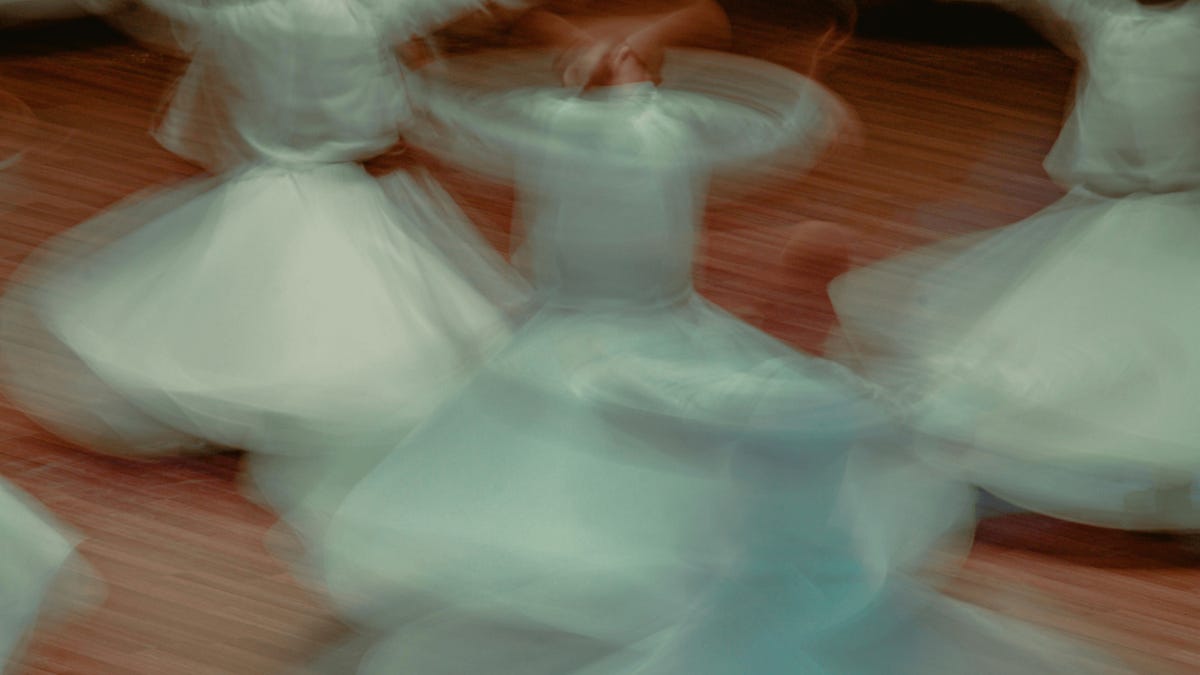The dancing monk: Why mature people don’t chase total control
The child has no control at all and the adult tries to control too much. But there is a third way.
“Put yourself […] in the mind of a 3-, 4-, or 5-year-old,” Oliver Burkeman instructs me. “You just get up every day, and you have no say. I mean, of course, you get some say, but you know what I mean? Where you live, where you’re going — you know that the plans are just completely outside of your control. Which, in a sense, is a very deep truth about the human condition, right?”
For this week’s Mini Philosophy interview, I spoke with the best-selling author and philosopher Oliver Burkeman about his various books, all of which, in their way, explore human mortality and limits. In 4000 Weeks: Time Management for Mortals, Burkeman makes the disarmingly stark point that we have only so many days on this planet. We cannot do everything. We have to choose where and how to spend our time.
In our conversation, we paused to zoom in on a problem this finitude presents: How can we marry the ideas of mortality and limit with the human need to control things? We imagine ourselves immortal, but the world has a habit of reminding us we’re not. In spite of all the evidence, many people insist on struggling along with some vain, fruitless, and unhappy project to make sure everything goes a certain way. Endless choice. Unrestricted access. Knowledge. Control.
So, where does that need come from, and is there a better way available to us?
The need to control
As Burkeman pointed out, children have no problem being told what to do. I’m sure many parents or teachers are screaming at the screen, “You’ve not met my kids!” Still, most young children, especially, have normalized the idea that “grown-ups” will tell them what to do and give them what they need. The food in the fridge fills up miraculously, the TV just turns on with the click of a button, and “Mom, where are we going today?”
One hallmark of growing up is taking responsibility. And, as all Uncle Bens of the multiverse will tell you, when you have power, you have responsibility. As an adult gains control over those things previously handed to them by other adults, they feel anxious and stressed. As existentialists like Søren Kierkegaard and Jean-Paul Sartre pointed out, with control comes ennui, angst, and analysis paralysis. Burkeman put it like this:
“What happens, as you get older, is you start to exert control, or at least influence, or try to get into control of things. And then people get a lot of anxiety when they realize the limits to their control. People are very aware of their vulnerabilities, yet still want to exert control. There’s this anxiety that comes from realizing you’re fragile and finite, yet you keep trying to manage or control that fragility.”
Like some insatiably voracious wolf, we gorge ourselves on more and more control, and groan under the indigestible weight of its inadequacy. And along the way, we forget what simple, calm happiness there is in not being in control. We forget that limits have their comfort.
A limited life
What is the answer to this? Of course, we cannot become children again. The bills need to be paid, that toothache needs fixing, and the fridge won’t fill itself. We cannot flop on the couch and call for Mom to bring us a snack. Nor should we live a life free of morality and responsibility. Our actions matter. We can control and change things.
Burkeman offers two points here. The first is to reclaim what the word “meaning” means. Over several millennia, a “meaningful life” was often defined in relation to God or some religious ideal. In a modern, secular age, it’s come to be defined as changing the world in a great, sweeping, “I’m going to get a statue” reform. But as Burkeman told me:
“All these implicit definitions of meaning are being smuggled in where it can’t possibly be meaningful to cook dinner for your son or volunteer at some local organization because you’re only helping a few people, and in a millennium, no one will ever know they even existed. To me, that’s just a strange and unhelpful definition of meaning. So, why can’t it be meaningful? Why can’t something be meaningful to do just because it doesn’t become a sort of permanent fixture of the time-space continuum forever or something?”
The dancing monk
Burkeman’s second point concerns how we can find the balance between anxiously needing to control everything and a despairing, hopeless quietism that says, “Que sera sera” to absolutely everything.
There is a third way, and Burkeman gives me an example.
Imagine three people dancing at a wedding. First, there is the child. The child twirls around, giggling and jumping, with the insouciant joy of one who has never been shamed. Dancing is fun, and so they dance. Second, there is a 30-something groomsman who shuffles awkwardly about the dance floor, nervously trying to look cool. Small step to the left. Small step to the right. Safe and inoffensive. Third, there is the dancing monk. They are dancing with the happy abandon of the child, but not from immaturity; rather, with the mature, intellectual recognition that they cannot change other people’s perceptions. The monk knows two things: “I like dancing,” and “I cannot make people like or dislike me.” And so, they dance.
This, for Burkeman, is what a happy life means. It’s one that lives in the joyful space between control and passivity. It’s one that recognizes limits and lives with them. It’s jumping into the boxed walls of the sandpit to make castles and cities. Happiness is a monk dancing at a wedding.
Jonny is the creator of the Mini Philosophy social network. He’s an internationally bestselling author of three books and the resident philosopher at Big Think. He's known all over the world for making philosophy accessible, relatable, and fun.
More Big Think content:
Big Think | Big Think Business | Starts with a Bang | Big Think Books







